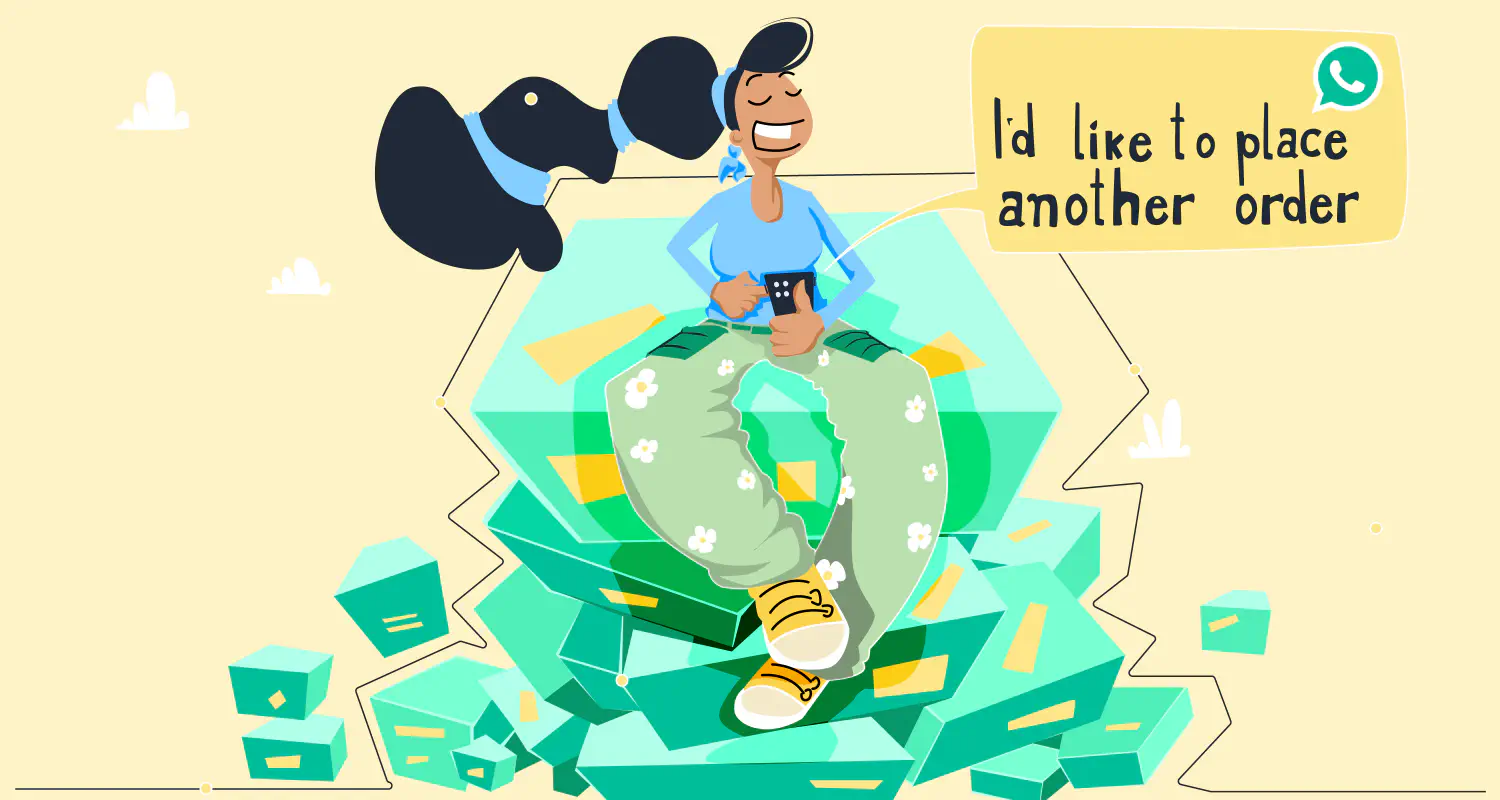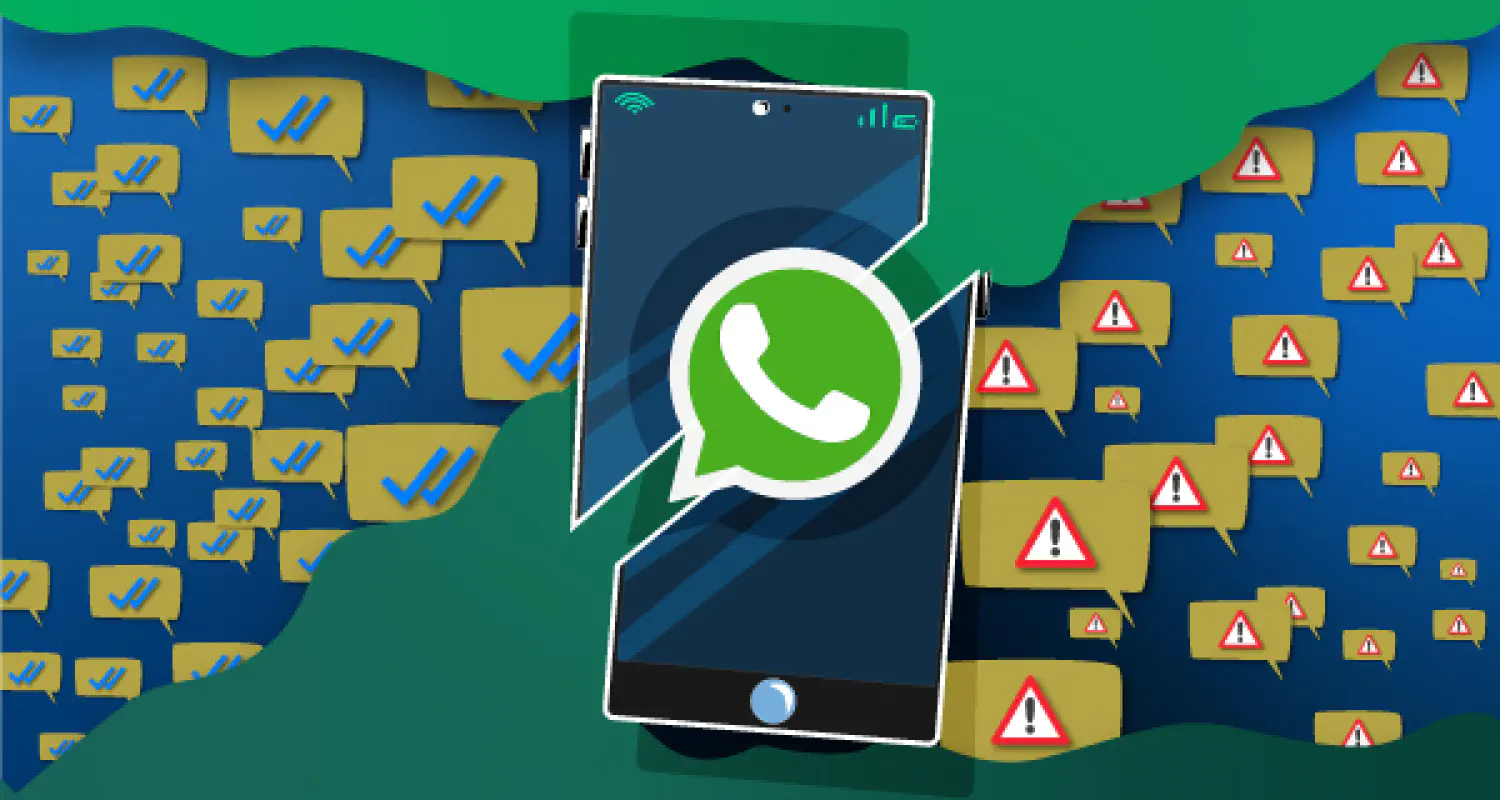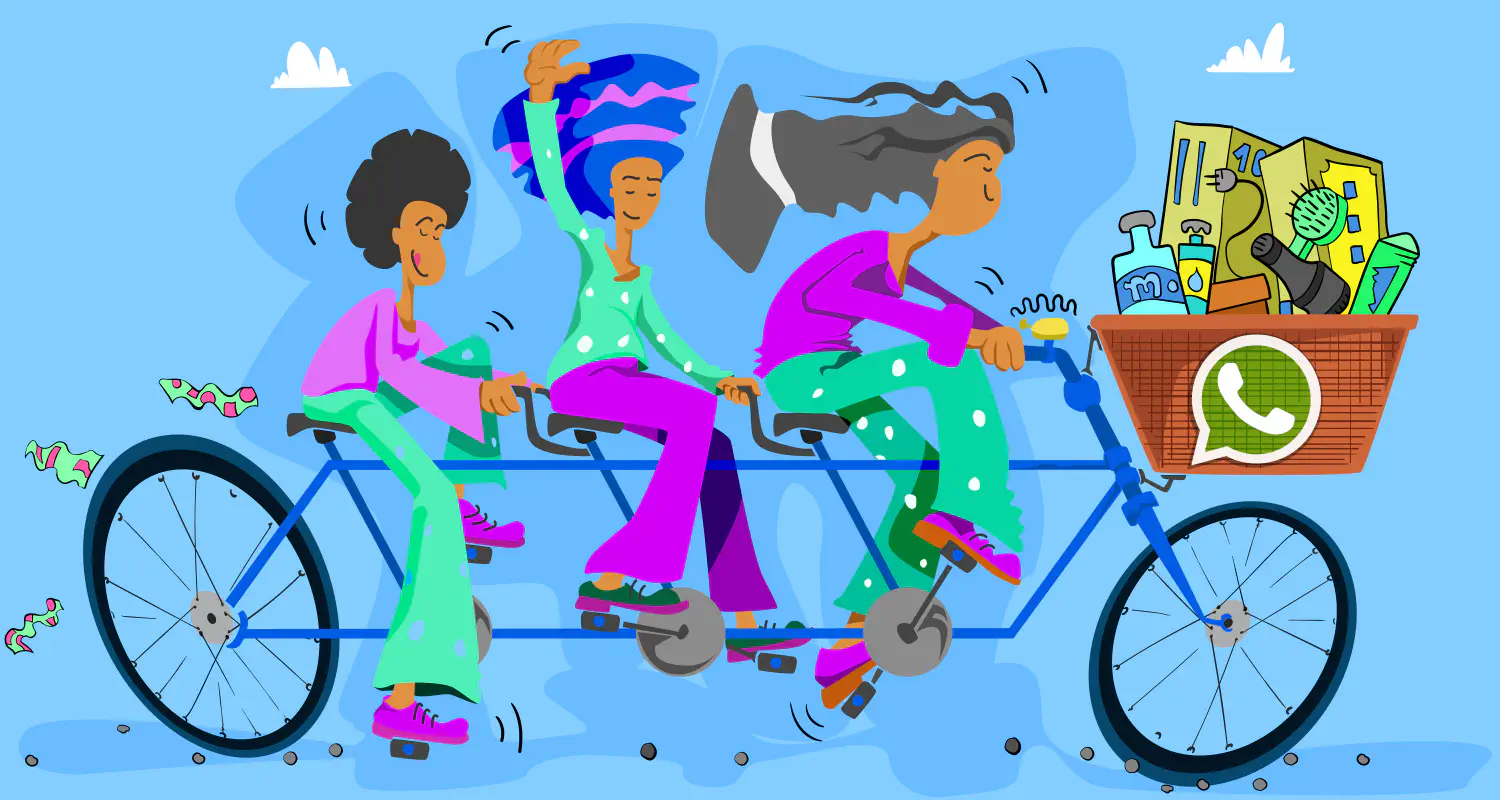How to Reduce Bounce Rates & Re-Engage Customers via WhatsApp
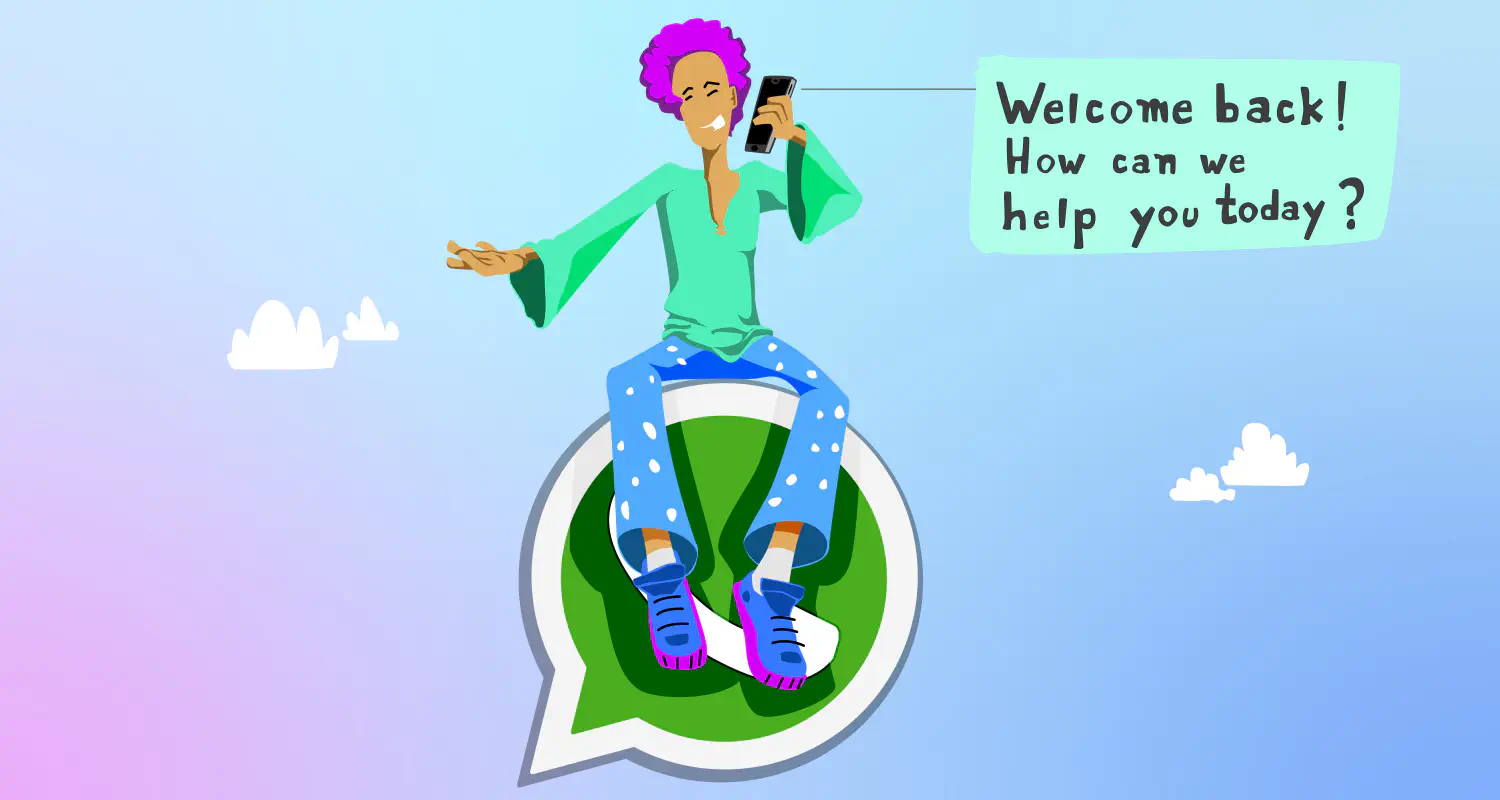
In the world of business, converting leads and retaining customers is imperative. Leads are often brief interactions, such as a prospect reaching out to inquire about a service. Often, the lead doesn’t follow up or provide any actionable contact information, which does not allow for extended conversations that can lead to sales conversions. If this is the case, the prospect has likely moved on.
Leads bouncing isn’t something unusual. Many people who visit your website will not make a purchase. According to data from IRP, the average conversion rate for eCommerce businesses in November 2022 was only 2.10%. If you want to get your business north from this terrifying statistic, engaging with your leads and understanding why they may be leaving your marketing funnel is essential. In this article, I will list some common reasons why your leads are bouncing and tips for re-engaging them, but first, let’s talk shortly about the world of WhatsApp.
A brief introduction to WhatsApp
WhatsApp is the most popular messaging app, used by more than two billion people in over 180 countries. Since the business version of the app was released in 2018, over 50 million companies have signed up for WhatsApp Business and continuously use it to stay in touch with their customers.
The WhatsApp Business app has additional features that enable businesses to increase their reach and engagement rates. The app allows businesses to boost their marketing results with broadcasts, product catalogs, and basic automation like welcome and away messages.
In 2018 WhatsApp Business Platform/API was launched, powering more advanced features, such as advanced broadcasts, complex automation and chatbots, analytics, and more. To access the WhatsApp Business Platform/API, you’d have to either subscribe to one of the Business Solution Providers (BSPs) or use WhatsApp Cloud API, which can be acquired directly from Meta.
The WhatsApp Business Platform/API doesn’t have a user interface, so to use it, you either need to create it yourself (if you are a technical person or have a tech team) or connect it to a customer communication platform such as Rasayel.
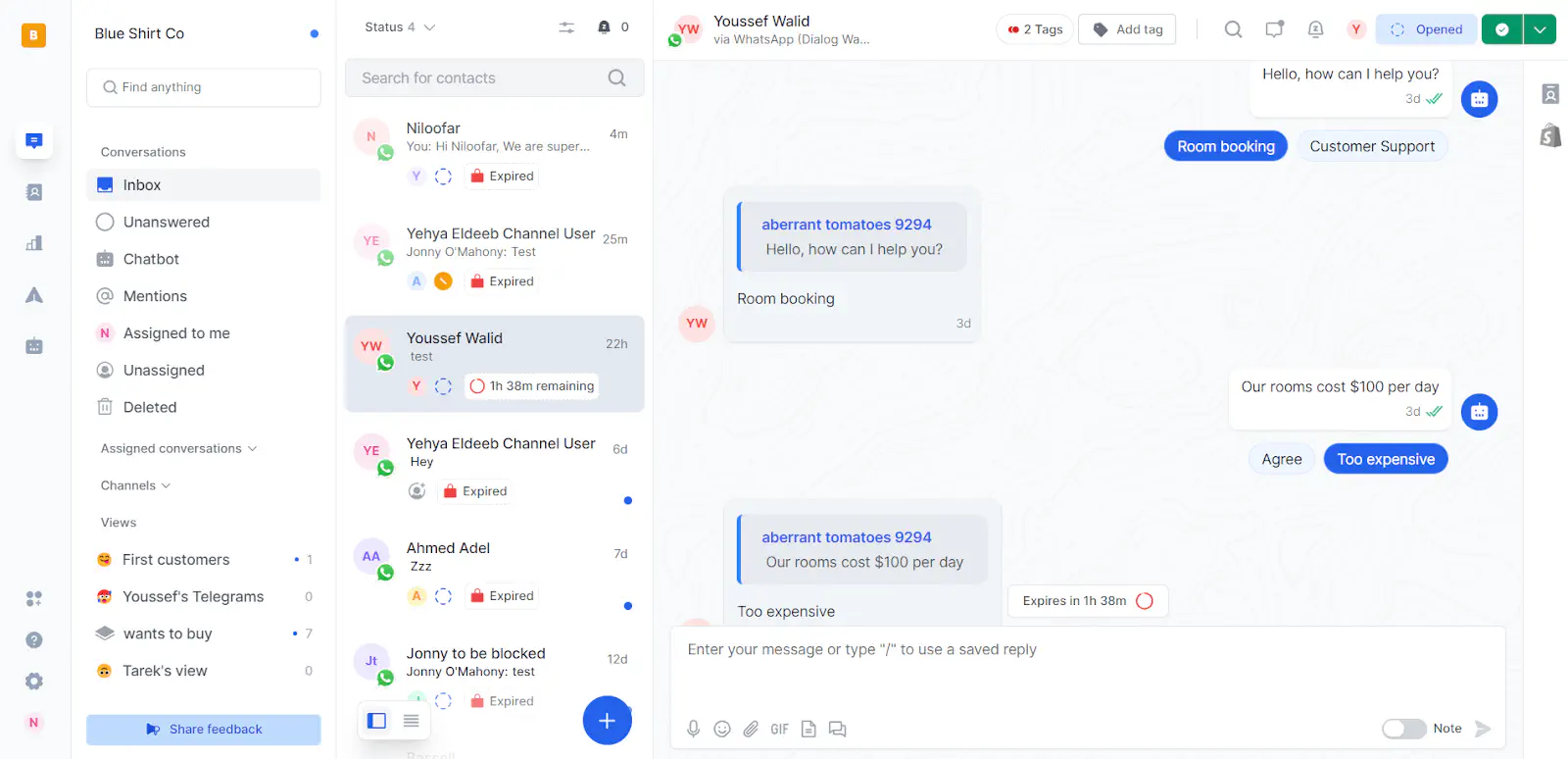
If you want to learn more about the different tools and features within the app and the API, read our article: The difference between WhatsApp Business app and WhatsApp Business Platform/API.
Now that we understand the world of WhatsApp let’s see how you can stop the negative trend of high bounce rates. Here are some of the most common reasons why your customers are leaving your brand.
You keep your customers waiting for a response too long
Everyone using WhatsApp to interact with prospects and customers dreams of more connections. The more people connected to your brand, the more chances for interactions, potential conversions, and opportunities to profit.
However, timely responses are crucial in converting potential customers. According to a study by HubSpot, 82% of consumers expect immediate responses to their marketing or sales inquiries. Messaging apps which include chatbots, allow quick responses to customer inquiries, even if live agents are not immediately available.
While chatbots may not be able to address every issue, they can still provide immediate acknowledgment of inquiries and provide context for live agents to effectively handle more complex questions.
If you want to learn more about WhatsApp chatbots, read our other posts:
- A WhatsApp Chatbot for Your eCommerce Business (coming soon)
- How to create a WhatsApp chatbot in 5 steps (coming soon)
- A simple strategy for creating a user-friendly WhatsApp chatbot
You don’t qualify your leads
An appropriately qualified lead means lower bounce rates and higher conversion rates. Lead qualification is crucial for identifying and prioritizing leads more likely to make a purchase rather than wasting time on those unlikely to convert. You can do this by developing a set of questions to help identify individuals who fit your target customer personas.
WhatsApp can be useful for asking these questions and quickly determining which leads are strong candidates for your business. When a customer opts to connect with your brand on WhatsApp, it shows that they are interested in receiving messages from your brand and are more likely to be qualified leads.
Additionally, WhatsApp allows you to easily categorize leads based on their qualification status, making it easier to prioritize and focus on the most promising leads:
- Unqualified leads who have yet to open up fully for you to understand their needs and determine if your business can meet them.
- Marketing qualified leads who are interested and ready to receive marketing communications, such as WhatsApp broadcast campaigns.
- Sales-qualified leads who have engaged with your marketing efforts learned about your product, and are ready to speak with a sales agent.
- Conversion qualified leads who have taken action that indicates a willingness to make a purchase, such as clicking on a call-to-action (CTA) or filling out a contact form.
Chatbots can be an extraordinary tool for lead qualification. You can create a chatbot that asks qualifying questions and provides reply buttons for leads to select their responses easily. They can do this with a simple tap, and within a short amount of time, you can create a profile for the lead.
In the example below, a real estate agency uses a chatbot with reply buttons to qualify leads. If there are listings that match the lead’s interests and qualifications, the chatbot can assign an agent to them. The chatbot can inform the prospect accordingly if there are no matching listings.
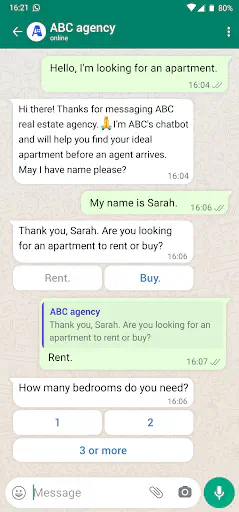
Your marketing and communication are not personalized
Directing people to your website or Shopify store is just half the battle. You need to have relevant offers that align with the interests of your visitors. WhatsApp can help you create personalized offers by using chatbots to interact with site visitors and understand their preferences.
One effective method of doing this is by creating product catalogs and sending them to leads via WhatsApp. Catalogs allow leads to view pictures, descriptions, and prices for all of your products and can even be organized by product type to provide a more targeted list to leads who have shown interest in a specific product type.
Another vital aspect of personalized marketing is addressing customers by name because it conveys that warm feeling of being known and appreciated. Brands can run personalized broadcast campaigns with message templates using the WhatsApp Business Platform/API connected to a customer communication platform like Rasayel. These messages have variables and placeholders that are dynamically filled with data for each recipient.
Here’s how a message template sent to someone named, for example, Robert might look like:
Hello {{1}}! It’s the holiday season, which means our Christmas sale is back! 🤩 We are offering up to 30% discount on selected items. Follow this link to view the items on sale. If you have any questions, feel free to ask us. Happy shopping, and Merry Christmas! ☺️
And here’s how Robert will see the message:
Hello Robert! It’s the holiday season, which means our Christmas sale is back! 🤩 We are offering up to 30% discount on selected items. Follow this link to view the items on sale. If you have any questions, feel free to ask us. Happy shopping, and Merry Christmas! ☺️
Each message template needs to be approved by WhatsApp before you can use it. It takes about 24 hours to get the approval.
You’re impatient to close the deal
It is understandable to want to close a deal quickly, but pressuring potential customers into making a purchase is counterproductive. This can make them feel discouraged and potentially even turn away from your brand.
Instead, using WhatsApp to provide educational resources and information to potential customers as they get to know your brand can be a winning strategy. When they are ready to make a purchase, they may reach out and request more information or pricing details. At this point, you can use WhatsApp to provide special offers and discounts to gently encourage them to make an order.
You don’t run abandoned cart campaigns
Have you ever added something to your online shopping cart but not completed the purchase? This is a common occurrence, and it likely happens on your own site as well. It’s essential to pay attention to these potential customers.
If someone leaves items in their cart without checking out, treating them as leads is the best thing you can do. You can use WhatsApp to reach out to these customers with an abandoned cart campaign, reminding them of the items in their cart, following up, and potentially offering a discount coupon. This can help re-engage them and encourage them to complete their purchase.
If you’re using the WhatsApp Business Platform/API connected to a Shared WhatsApp Inbox such as Rasayel, you can scale this process by running broadcast campaigns with interactive message templates.
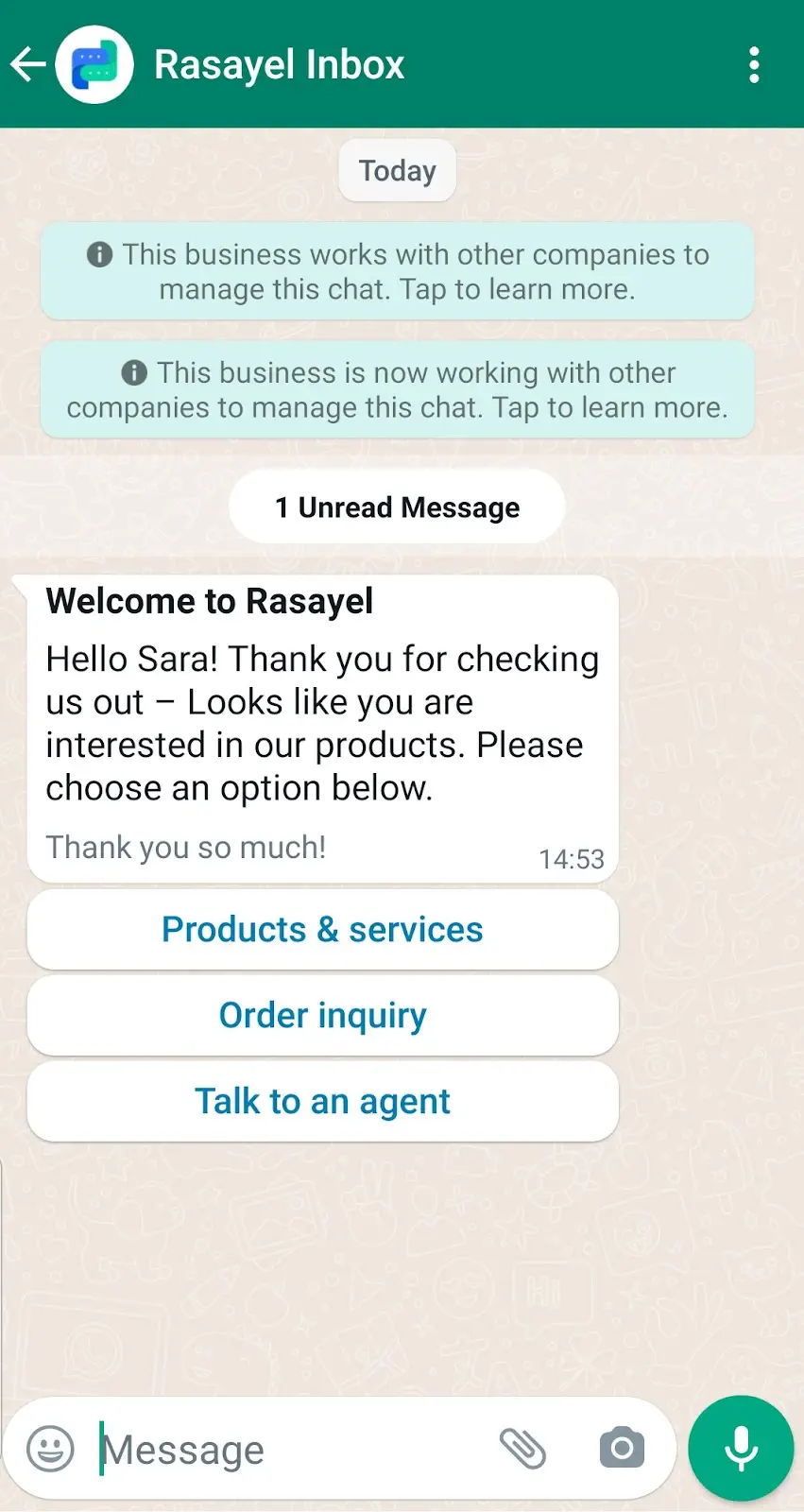
Conclusion
Common reasons your leads are bouncing include slow response times, lack of personalization, and lack of follow-up. To re-engage leads, you can use tools like chatbots, personalized messaging, and follow-up communication. Utilizing the WhatsApp Business Platform/API and a customer communication platform can help you effectively communicate with leads and customers and significantly lower bounce rates.
If you’d like to learn more about how WhatsApp can help you grow your business, please reach out to us on WhatsApp at +13024070488.
We also offer a free consultation session where we review your use case, answer any questions about WhatsApp, and help you build a strategy to make the best out of the platform. Book a call with us here. We’d love to speak with you:
For Europe, the Middle East, and Africa

Hania is a seasoned researcher and content writer specializing in WhatsApp Business and its role in B2B sales and customer engagement. With years of experience creating in-depth, thought-provoking content, she combines real-life use cases and deep industry insights to help businesses leverage WhatsApp as a growth tool. Her expertise lies in translating complex research into actionable strategies, making her a trusted resource for companies looking to innovate their communication and sales processes.

